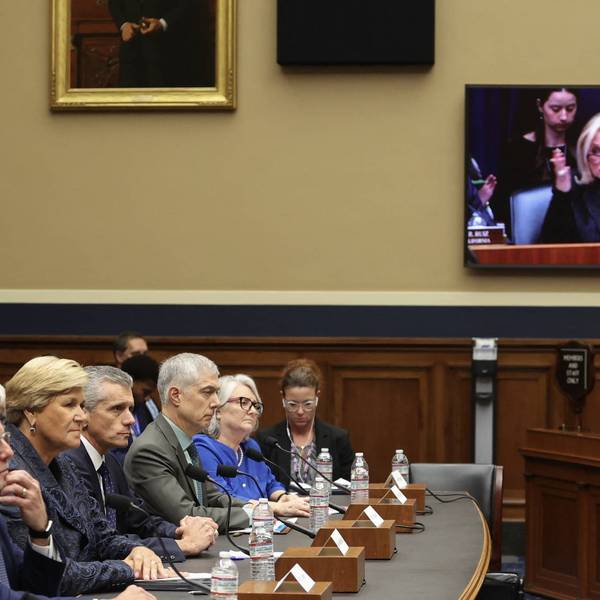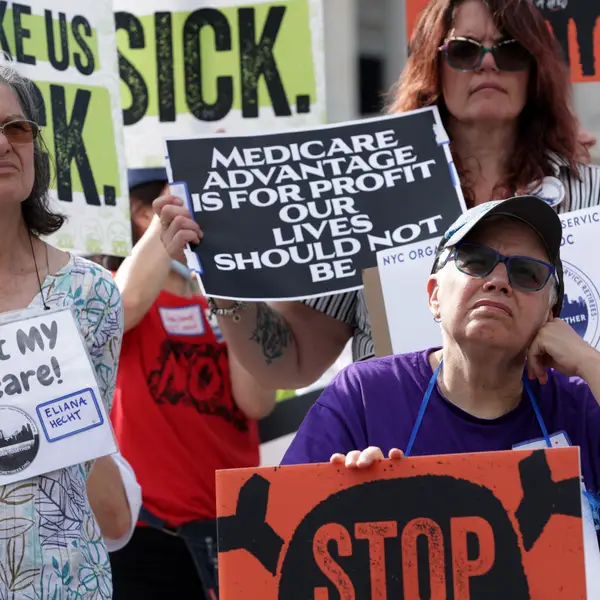Last month, fulfilling a campaign promise, Republicans in the House of Representatives voted to repeal "Obamacare." The vote was primarily a symbolic gesture. House leadership knows repeal will not survive a vote in the Senate or a Presidential veto. But the Republican leadership is likely to attempt steps that would lead to a de facto repeal of the health law.
One of the main strategies for weakening the law will be to prevent funding to key elements and programs--particularly of those having to do with enforcing regulations on the insurance industry.
We can also expect Republican members of Congress to promote "triggers," which change the law if certain goals are not met. These changes will drive employers to stop offering health insurance to employees and instead offer fixed contributions that employees can use to purchase health insurance on the open market. As premiums rise, more people will be forced to purchase skimpier policies, leaving them unprotected in times of need.
Republicans also advocate for the opening of the health insurance market across state lines in the belief that this will create competition that reduces the cost of health insurance. In truth, in order to make a profit, health insurers compete to insure the healthiest patients and to avoid paying for care. The result will be a race to the bottom.
Health insurance regulations--which control, for example, what services insurers must cover, or how many physicians they must allow patients to choose between--were put into place to protect patients. Regulations vary by state, meaning that, just as corporations move their headquarters to states with lower taxes, health insurers will base themselves in states with fewer regulations. Premiums may become cheaper, but at the cost of higher out-of-pocket costs and lower quality benefits that leave patients unable to receive needed care or forced into bankruptcy by an unexpected illness or accident.
Such changes shift more and more of the cost of care onto individual patients--particularly those who have the greatest needs. This is exactly the wrong approach if our goal is the creation of a system that improves the health of our population and controls our soaring health care expenditures.
The United States is the only industrialized nation that does not have a coherent health system and that allows investor-owned corporations to finance and provide health services. As a result, we have the highest health care costs in the world but relatively poor outcomes--not to mention a growing number of people who can't afford the care they need.
We have the cruelest form of health care rationing in this nation: rationing based on the ability to pay. Except for those in the very highest income brackets, we are all at risk of personal bankruptcy due to a health crisis. In fact, the U.S. is unique in that most personal bankruptcies are due to medical illness or medical costs--and more than three-fourths of those who experienced medical bankruptcy were insured.
The good news is that it doesn't have to be this way. As the weakening of the federal health care law begins, a nationwide effort for more substantial reform--a national single-payer system, also known as improved Medicare for All--is taking place. Health professionals and advocates around the nation are actively engaged in educating, organizing, and agitating to promote Medicare for All. There are tremendous opportunities at the state and national level to pass a single payer system.
As the current health law falls apart and our national deficit continues to grow, single-payer plans are gaining more and more interest. More than 20 state legislatures have either passed single payer health bills or are in the process of creating such bills. California has passed a single payer bill twice, only to have it vetoed. Advocates are working to pass the law once again this year. Vermont is in the process of putting together legislation setting up a system similar to single-payer; legislators expect to pass their bill this year. At the federal level, single-payer bills will be introduced in both the House and Senate.
Our current health spending is enough to pay for high quality comprehensive care for everyone if we switch to a single risk pool that is transparent and publicly accountable.
Dr. Margaret Flowers wrote this article for YES! Magazine, a national, nonprofit media organization that fuses powerful ideas with practical actions.
YES! Magazine encourages you to make free use of this article by taking these easy steps.
This work is licensed under a Creative Commons License



